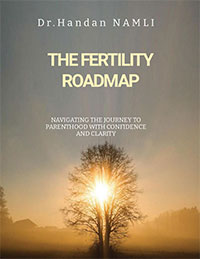Understanding the Impact of Maternal Age on Female Fertility: A Comprehensive Overview
As a fertility specialist, I often encounter concerns about the influence of age on female fertility. This topic is crucial for many women planning their reproductive journey. Understanding how maternal age impacts oocyte and embryo competence is vital for making informed decisions.
Age and Female Fertility
Age and female fertility go hand in hand. Fertility usually begins to decrease in females in their late 20s, while after attaining the age of 35, the decline becomes significant. By the age of 40, a female's chances of becoming pregnant naturally drop to about 5% per cycle. This decrease is due to a loss in both the number and quality of eggs over time. One significant reason for this is the reduction in ovarian reserve, which refers to the number and quality of a woman's remaining eggs.
Women are born with all the eggs they will ever have. The count is around 1-2 million eggs at birth. By puberty, this number drops to 300,000 to 500,000 and, by the age of 37, is just around 25,000. By menopause, only a few hundred eggs remain. The quality of these eggs also diminishes with age, increasing the risk of chromosomal abnormalities in the zygotes, which may cause miscarriages or congenital disabilities. This decline in fertility with age is gradual and natural, but many variables, such as genetics, lifestyle, and overall health, highly modulate it.
Chromosomal Abnormalities and Aneuploidies
Aging increases the risk of chromosomal abnormalities due to errors in meiosis during oogenesis. These errors lead to a higher incidence of aneuploidies, which are chromosomal imbalances in embryos. Notably, over 90% of these abnormalities originate from maternal factors.
Mitochondrial Dysfunction
Mitochondria, the cell’s energy powerhouses, exhibit decreased function and number in older oocytes. This dysfunction results in reduced ATP production, impairing critical processes for oocyte maturation and embryo development.
Telomere Shortening
Telomeres, the protective DNA sequences at chromosome ends, shorten with age. Shortened telomeres are linked to increased chromosomal missegregation and decreased oocyte competence.
Cohesin Dysfunction and Spindle Instability
Cohesins, proteins that hold sister chromatids together, degrade with age, leading to chromosomal missegregation. Additionally, spindle instability, crucial for accurate chromosome segregation, increases with age, contributing to higher aneuploidy rates.
Lifestyle Factors
Various lifestyle factors can influence fertility. Smoking may quicken the loss of eggs and lead to reproductive aging. Obesity can interfere with fertility through changes in hormone levels and ovulation. Conversely, observing a healthy lifestyle through proper nutrition and regular exercise can foster optimal reproductive health.
Clinical Strategies
Several strategies can help manage the impact of aging on fertility:
- Fertility Preservation: Oocyte cryopreservation is recommended for women who wish to delay childbearing. This process involves retrieving and freezing eggs during one's peak reproductive years for use at a later time.
- Optimized Ovarian Stimulation: Tailored protocols can increase the number of oocytes retrieved during IVF, improving chances of success.
- Embryo Selection: Preimplantation genetic testing helps identify euploid embryos, enhancing successful implantation rates and reducing miscarriage risks.
- Oocyte Donation: For women with significantly diminished ovarian reserve, using donor eggs can effectively circumvent age-related fertility declines.
- Regular Medical Advice: Women who plan to have babies later in life should consult with their medical advisors and undergo regular fertility assessments. Understanding one's fertility status can provide valuable insights and help in making informed decisions about family planning.
Conclusions
Maternal age is a critical factor affecting reproductive success. Advanced maternal age is associated with decreased oocyte and embryo competence due to various biological mechanisms. However, with informed decisions and the right clinical strategies, the impact of aging on fertility can be managed effectively.
By staying informed and consulting with fertility specialists, women can navigate their reproductive years with confidence and control. Medical advancements and proactive measures can help women achieve their family planning goals, regardless of age.
For more insights and updates on fertility, stay tuned to our weekly newsletter.
References
- Cimadomo D, et al. (2018). Impact of Maternal Age on Oocyte and Embryo Competence. Frontiers in Endocrinology, 9:327. doi: 10.3389/fendo.2018.00327.
- American Society for Reproductive Medicine. (2012). Age and Fertility: A Guide for Patients.
- Practice Committee of the American Society for Reproductive Medicine. (2008). Ovarian reserve testing.
- Royal College of Obstetricians and Gynaecologists. (2011). Fertility: Assessment and Treatment for People with Fertility Problems.

